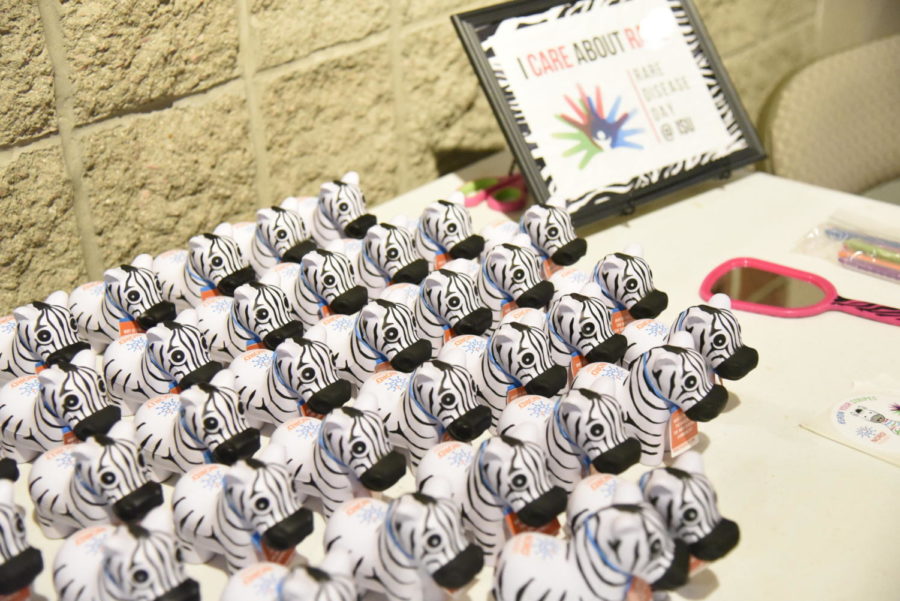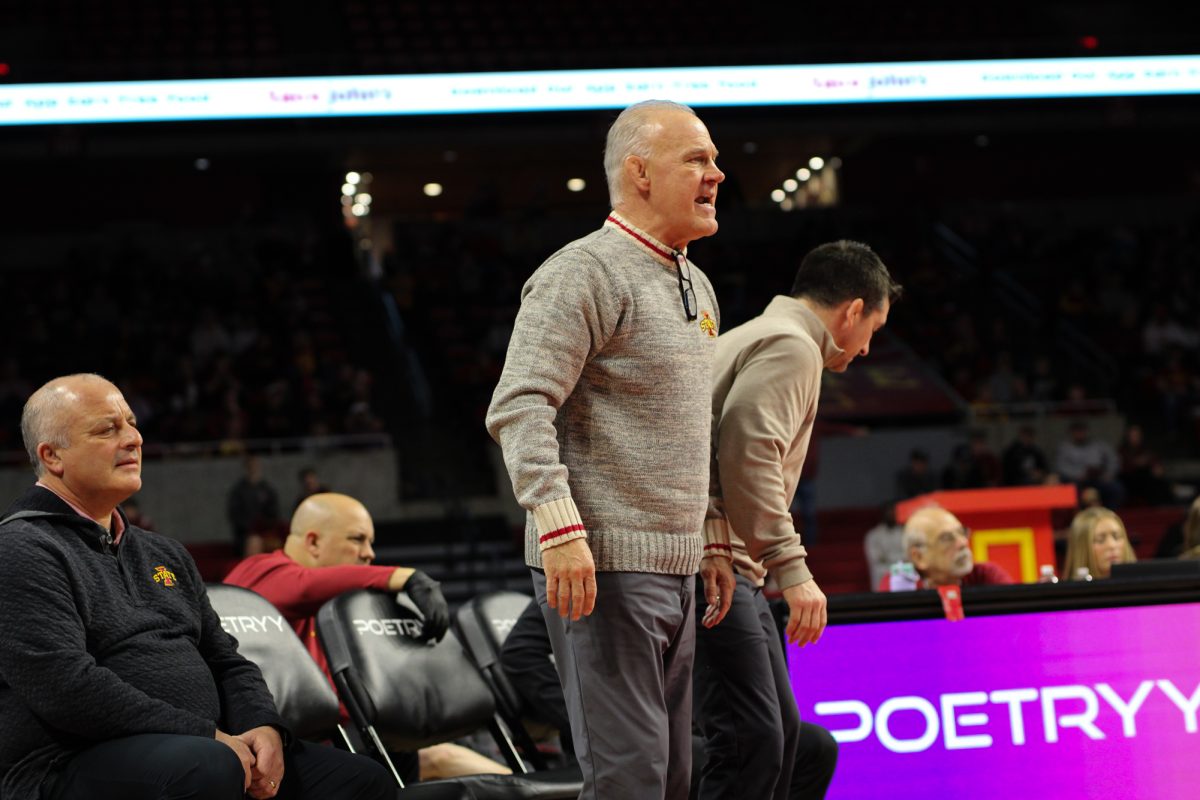Rare disease event presents effects of conditions and highlights experiences
February 26, 2020
The Iowa State Rare Disease Awareness Club (RDAC) hosted an event dedicated to Rare Disease Day, a day to raise awareness and educate the public about rare diseases.
The event was kicked off by John Bunney, senior in physics and president of RDAC at Iowa State. Bunney gave a presentation that highlighted the statistics surrounding rare diseases and the importance of awareness. He had also discussed his experience as someone who lives with a rare disease.
“The internet may be your best friend,” Bunney said. “For me, it helped me learn because doctors didn’t have the resources to study my rare disease.”
Next, Bunney discussed the importance of conversation when it comes to rare diseases, especially in regard to mental health.
“Spending years looking for a diagnosis means, for some patients, that it becomes impossible to stay hopeful that they’ll ever find answers,” Bunney said. “Incidence of depression and anxiety is greater than 75 percent.”
Following Bunney’s speech was a presentation given by Lillian Howard, a graduate from Iowa State who has a master’s degree in genetic counseling. She spoke on her experience as a genetic counselor and the stigmas that surround those with rare diseases and their families.
Howard had also stressed the importance of funding for genetic testing, a method used to learn more about rare diseases and their symptoms. She refers to her patients as zebras, a common term used in the medical field, to describe those with rare diseases.
“It’s easier when you have a herd. When you have those people to lean on, you can see hope. With rare diseases, you need to get horses involved. Not just zebras,” Howard said.
Howard then introduced the audience to the common medical phrase, “When you hear hoofbeats, look for horses, not zebras.” In an example of this, she said in a situation where an individual shows symptoms such as a sore throat, a doctor is more likely to test for strep throat rather than throat cancer.
Following Bunney and Howard’s presentation was the panel walk, where attendees could talk with members of RDAC and presenters of the panels.
“I am a parent of a child with a rare disease, and when I found out Iowa State was hosting an event like this, I just had to get involved,” said Shannon Grundmeier, an academic adviser for the business undergraduate program.
Grundmeier was one of the presenters at the event, standing alongside a few others, all of which who have been personally impacted by a rare disease. She was standing next to her panel, which discussed Kleefstra Syndrome, a disorder that involves numerous parts of the body. One of the key features of this disorder includes developmental delay, severely limited or absent speech and weak muscle tone (hypotonia), according to the U.S National Library of Medicine’s website.
“My son received a diagnosis a little over a year ago, and we want to raise awareness about his unique condition because hardly anyone knows about it, including medical professionals,” Grundmeier said.
Morgan Tweed, a graduate student in architecture, member of RDAC and president of the Alliance for Disability Awareness club, was one of the presenters during the open panel.
Tweed’s poster informed attendees about Moersch-Woltman Syndrome, also known as stiff-person syndrome. Those affected by this condition tend to have progressive and fluctuating muscular rigidity that can include muscle spasms, according to Tweed’s poster.
“Our goal is to help the disability office raise awareness on campus and help students who need accommodations,” Tweed said. “What we try to do is help students know what’s there because most students don’t know what is available to them.”
Tweed also discussed resources that are available to Iowa State students, such as the Digital Accessibility Lab, located in Durham Center 108, which recently opened in November 2019.
The Digital Accessibility Lab is a campus space for students with disabilities to “work together using assistive technology and a place for them to try out new technologies that could increase their course engagement,” according to the Digital Access website.
Those who are interested in learning more about Rare Disease Day can visit rarediseaseday.org. The 2020 Rare Disease Day is Saturday.







